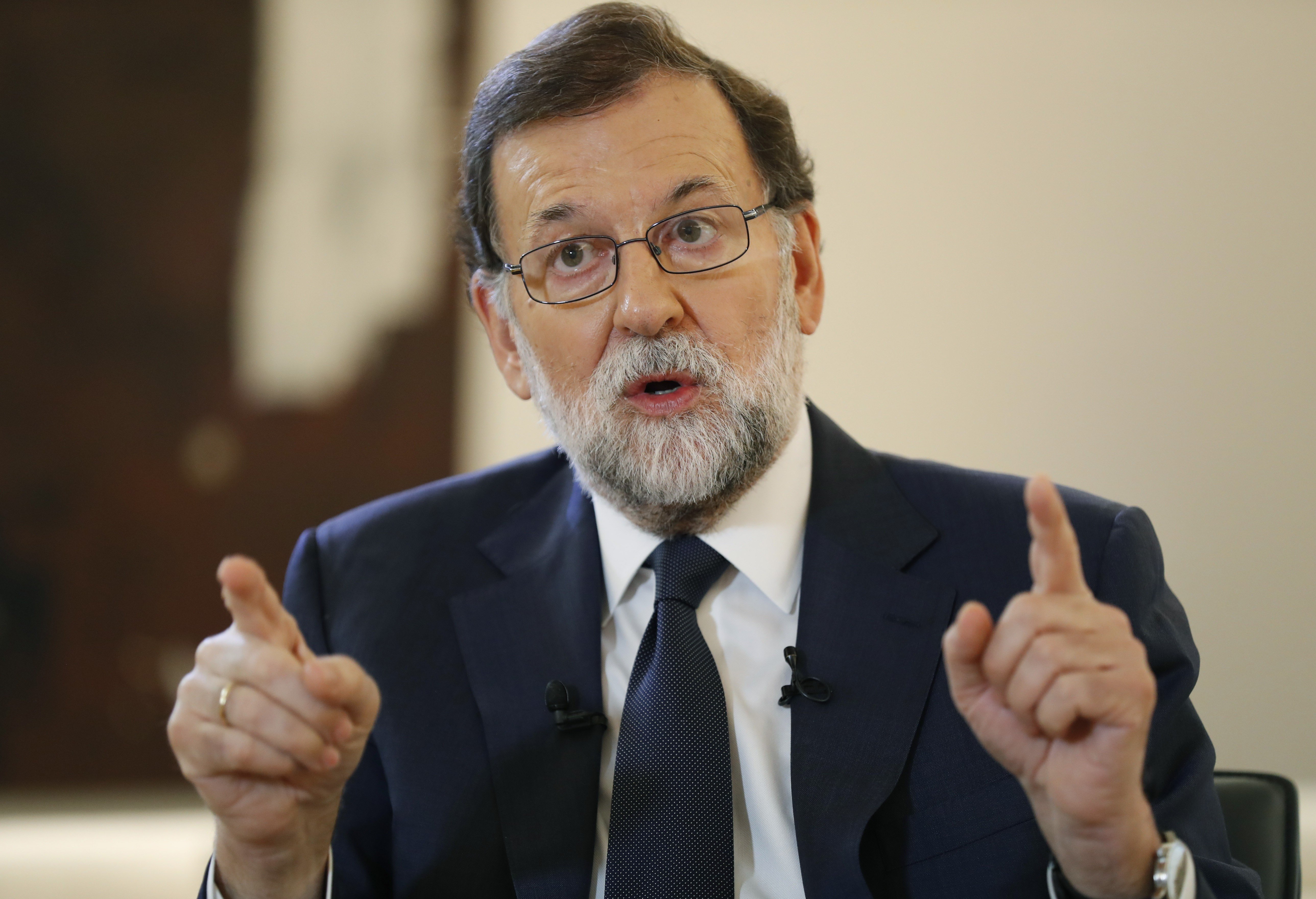The Spanish prime minister, Mariano Rajoy, has opened the path to applying article 155 of the Spanish Constitution which would revoke Catalonia's autonomy. The first step, sending a requirement to Catalan president Carles Puigdemont to clarify whether or not he has formally declared independence, was announced by Rajoy in an official statement from his Moncloa palace residence after this Wednesday's extraordinary cabinet meeting. Constitutionally, such a notification is the first requirement to apply the article. Moncloa sources are not specifying the time limit Rajoy has given Puigdemont to respond.
"The aim is to confirm whether he declared independence to offer clarity on a question of such importance. The Spanish government wants to offer certainty and end with the confusion created by the Catalan government," said the Spanish prime minister, referring to the Catalan president's move on Tuesday afternoon of declaring independence and immediately suspending its effects. For the Catalan government, this put the ball back in Moncloa's court. Puigdemont said the suspension was to open a period of dialogue, thus responding to calls in recent days from a variety of European leaders, including the president of the Council of Europe, Donald Tusk.
Ante la confusión generada en Cataluña, el #CMin ha aprobado requerir a la Generalitat a que aclare si ha declarado la independencia pic.twitter.com/Ls1Wa3LUs9
— Mariano Rajoy Brey (@marianorajoy) 11 d’octubre de 2017
Translation: Facing the confusion created in Catalonia, the #cabinet has approved requiring the Catalan government to clarify whether it has declared independence.
In this state of affairs, the article doesn't necessarily have to definitively come into effect, said Rajoy, if Puigdemont "shows willingness to respect the law". "It would put an end to a period of instability, tensions and a break of coexistence, which is what everyone wants and hopes for. Specifically so that calmness and tranquillity return as soon as possible," said Rajoy. "Mr Puigdemont has the opportunity to pay attention to the call to maintain the legal security of Catalonia, always keeping in mind the well-being and general interest of Catalans and Spaniards."
The leader of PSOE (Spanish Socialist Workers' Party), Pedro Sánchez, met with Rajoy in Moncloa on Tuesday evening. PSOE's support is seen as key to applying article 155, even though the PP (Popular Party) has the majority it needs in the Senate. This is because the Spanish government has always said it would prefer to not break the unity between the constitutionalist parties. PSOE, for their part, have maintained a certain ambiguity over their position and called for dialogue with Puigdemont, as they said to Rajoy directly on 2nd October.
For Ciudadanos (Citizens), Albert Rivera's support has been guaranteed for some days now and he called Rajoy this morning, even if he wasn't asked to attend yesterday's meeting. Rivera has always maintained that article 155 should be used to call elections in Catalonia, as a way of immediately putting an end to plans for independence. This was what he said to Rajoy in the 2nd October meeting, whilst Moncloa wanted to wait for more signs supporting an article which has always caused much controversy.
It's known that the government's legal services believe article 155 can be enacted in just five days, depending on the response from the Catalan government. The Spanish deputy prime minister, Soraya Sáenz de Santamaría said in the Senate this week that they "wouldn't allow" this "disobedience" to continue. If this is the case, the mediation Puigdemont called for in the Catalan Parliament might not take place, as Santamaría hinted in her short statement. "Dialogue between democrats takes place within the law and respecting its legality."

